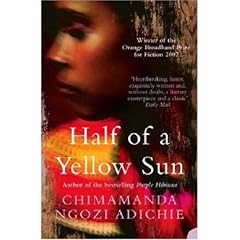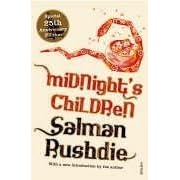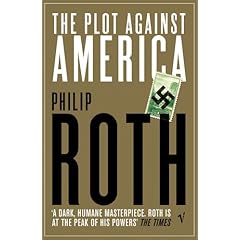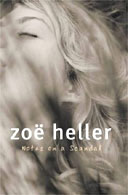 War destroys all that is left of innocence. It pulls people together, and it drives them apart. People are left asking questions, as they pine for their loved ones, as they try and contemplate the horrors of war, and as they struggle to survive - just so that they can see a better day.
War destroys all that is left of innocence. It pulls people together, and it drives them apart. People are left asking questions, as they pine for their loved ones, as they try and contemplate the horrors of war, and as they struggle to survive - just so that they can see a better day.
And it is this aspect of war that Adichie focuses on in her much-acclaimed novel, Half of a Yellow Sun. The story, based in the 1960s, revolves around the Nigeria-Biafra war - a historical event that has escaped the chapters of most history texts outside Africa - and the massacre, starvation, illness, and fear it brought in its wake, as the Igbo people battled for their independence, which was short-lived. Biafra (even my spell-check doesn't recognize it!), in 1970, returned to Nigeria, and as the book stated: a million people died, in the process.
The story's main protagonists are the twins: Olanna and Kainene, who are poles apart, both in looks and in attitude; their lovers: the 'revolutioary professor' Odenigbo, and the awkward introverted Richard - an expatriate writer, enchanted by Igbo history. And then of course, there's Ugwu, a poor village boy who has come to serve the professor, as a house-boy.
The twins, at the outset, are estranged and distant, for no reason whatsoever. Olanna is about to move in with Odenigbo, and teach in Nsukka, whereas Kainene is looking to take her father's business to greater heights. However, as things turn out, due to love and betrayal, the twins' rift grows deeper, and Olanna finds herself avoiding Kainene. She does, however, adopt Odenigbo's love-child from a brief one-night affair, and finds herself devoted to Baby's health and happiness.
When war breaks out, and strains some of the relationships, while simultaneously bridging the gap in some, we see the weakness and strength in the characters as never before.
Richard, an Englishman (and Kainene's lover) remains in the warzone, and writes articles for the international media, propagating the cause of the Igbo, instead of returning to his motherland. He is disgusted when some white journalists show up, and ask about the unfortunate death of another Englishman. His sarcastic comment at that point is along the lines of: one white person is equivalent to a thousand Biafrans.
Odenigbo finds comfort in his papers, and his theories, but when war breaks out he resorts to alcohol. Olanna, and Ugwu set up a small formal school, as all the schools around them are closed down, and transformed into refugee camps. Kainene, on the other hand, sets up a refugee camp, and tries to ensure that there are enough protein pills and food for everyone - specially the children.
As the characters are introduced, and their role in the story starts shaping up, I couldn't help but marvel at how Adichie's writing shifts from prosaic to poetic. And that, at times, is disconcerting. For example, in the opening chapter, Ugwu is overwhelmed by the richness of his new environment:
He looked up at the ceiling, so high up, so piercingly white. He closed his eyes and tried to reimagine this spacious room with the alien furniture, but he couldn't. He opened his eyes, overcome by a new wonder, and looked around to make sure it was all real. To think that he would sit on these sofas, polish this slippery-smooth floor, wash these gauzy curtains.
and I think that's a beautiful piece of writing - so vivid, and I can close my eyes, and actually imagine Ugwu's wonder, just by the above line.
But then, later on in the book, after the war had started, the descriptions were enough to make me, as a second-hand observer, feel queasy. The below is a snippet when Olanna was on a train, heading back home to her revolutionary lover, after the war had broken out, and the Igbo people were being found out and massacred.
Olanna looked at the bowl. She saw the little girl's head with the ashy-grey skin and the plaited hair and rolled back eyes and open mouth. She stared at it for a while before she looked away. Somebody screamed.
The woman closed the calabash. 'Do you know,' she said, 'it took me so long to plait this hair. She had such thick hair'.
And then there's the scene Richard witnessed at the airport, on landing from England, where his cousin was getting married.
Richard saw fear etched so deeply on to his face that it collapsed his cheeks and transfigured him into a mask that looked nothing like him. He would not say 'Allahu Akbar' because his accent would give him away. Richard willed him to say the words, anyway, to try; he willed him something, anything, to happen in the stifling silence and as if in answer to his thoughts, the rifle went off and (his) chest blew open, a splattering red mass [...]
My favorite character of the book has to be Kainene, just because she's offbeat, and has no illusions (read delusions) of grandeus about herself. While Olanna was occasionally self-piteous, Odenigbo was a character I couldn't relate to. He was an intellect, but came across as a know-it-all. Ugwu was a character I had grown quite fond of, as I could actually relate to some of his thoughts (hats off to Adichie for creating one of the most 'real' characters I've come across, in a long time), but without giving much away, I will say that there are certain things that make a character somewhat irredeemable. And Richard, well, I admired him for sticking to the Igbo people, as though they were his own, but, his character was probably the blandest of them all, if you know what I mean?
In this story about love, loyalty, betrayal, redemption, and survival, Adichie brings up the painful reality of war; unflinchingly discussing gang-rapes, starvation, children dying, and the horrors of air-strikes, where everyone tries to hide in a bunker. In an ironic statement, we see how everything is held together, precariously, as a girl's belly starts to swell, and her mother wonders is she pregnant or is she dying. (a swollen belly indicates 'kwashiorkar', or protein deficiency).
This is a very well-written profound book, and it really wouldn't surprise me if it became a classic of our times. However, in critique, the couple of things I will say are:
In my opinion, the flow of the book was disrupted by how the first section was based in the early 1960s, the second in the late 60s, the third in the early 60s again, and the final section was based in the late 1970s. I didn't quite understand why that was done, because I'm not at all convinced it enhanced the story in any way.
Second, why on earth was a six year old referred to as Baby throughout the whole book? Fair enough, it worked for Jennifer Grey in Dirty Dancing, but, in a warzone, even if you're trying to depict the innocence of a child, the name 'Baby' really doesn't do it. Well, it didn't for me!
And also, I found the last paragraph a weak ending to an otherwise great story. I really do not want to give much away at the time, but, it was an ending that left a bit to be desired. In fact, the way it came about was almost rushed.
Overall, a 7.5 on 10.
 Background:
Background:  Background:
Background: Shortlisted for the Booker Prize 2008, and winner of the Costa Award 2008, The Secret Scripture explores the lives of both, Dr. Grene (a psychiatrist) and his centerian patient, Roseanne, as both characters reflect on their life from their youngest days, to where are they at this point in time.
Shortlisted for the Booker Prize 2008, and winner of the Costa Award 2008, The Secret Scripture explores the lives of both, Dr. Grene (a psychiatrist) and his centerian patient, Roseanne, as both characters reflect on their life from their youngest days, to where are they at this point in time. I'm not a chick-lit fan at all. The last time I read
I'm not a chick-lit fan at all. The last time I read 
 Yes, I did enjoy the book, and I think it's definitely worth a read. It provides the reader with an insight into life in the South in those times: oppressed women, abusive men, judgmental society. The story is told through the eyes of Celie, a girl of 14 (when the book begins), who has suffered a fair bit; being raped by the man she calls 'father', being forced to marry a man significantly older than herself who is in love with a famous blues singer (Shug Avery), and being separated from her sister, Nettie. It's the exploration of these subjects that make the book a little difficult to read, as you can't help but feel your heart go out to poor Celie, who writes her story to 'God', as she has been told never to tell about her abuse to another person.
Yes, I did enjoy the book, and I think it's definitely worth a read. It provides the reader with an insight into life in the South in those times: oppressed women, abusive men, judgmental society. The story is told through the eyes of Celie, a girl of 14 (when the book begins), who has suffered a fair bit; being raped by the man she calls 'father', being forced to marry a man significantly older than herself who is in love with a famous blues singer (Shug Avery), and being separated from her sister, Nettie. It's the exploration of these subjects that make the book a little difficult to read, as you can't help but feel your heart go out to poor Celie, who writes her story to 'God', as she has been told never to tell about her abuse to another person. The winner of the Booker Prize in 1981, the Booker of Bookers in 1993, and the Best of the Booker in 2008, this book is much-acclaimed and highly recommended. The
The winner of the Booker Prize in 1981, the Booker of Bookers in 1993, and the Best of the Booker in 2008, this book is much-acclaimed and highly recommended. The  This is another one of my reviews that have been pending for over a month. While I'm reading the super-chunky Midnight's Children, I thought it's a good time to get up-to-date with some of the reviews which really should have been written earlier.
This is another one of my reviews that have been pending for over a month. While I'm reading the super-chunky Midnight's Children, I thought it's a good time to get up-to-date with some of the reviews which really should have been written earlier. This review has been outstanding for about a month and a half, and for that I apologize. I read it back when I was working towards a big deadline, and I just didn't find time to review it back then. But here it is, now...
This review has been outstanding for about a month and a half, and for that I apologize. I read it back when I was working towards a big deadline, and I just didn't find time to review it back then. But here it is, now... I'm trying to read all the Booker winners, in the next couple of years. This painstakingly dull book, filled with unengaging characters and a pointless plot adds a serious blemish to my plan at the very outset. I struggled through the first thirty pages, and struggled some more 'til I hit page 89, in a week... And then... then I just gave up, and figured this book is not for me. I mean, what a gigantic waste of my reading time!
I'm trying to read all the Booker winners, in the next couple of years. This painstakingly dull book, filled with unengaging characters and a pointless plot adds a serious blemish to my plan at the very outset. I struggled through the first thirty pages, and struggled some more 'til I hit page 89, in a week... And then... then I just gave up, and figured this book is not for me. I mean, what a gigantic waste of my reading time!  Who doesn't love a good juicy scandal? The type that makes its way to the tabloids, and has everyone talking about it, and judging the protagonists of the impropriety. Everyone has an opinion, and more oft' than not, it's judging the miscreants. Society. Business as usual.
Who doesn't love a good juicy scandal? The type that makes its way to the tabloids, and has everyone talking about it, and judging the protagonists of the impropriety. Everyone has an opinion, and more oft' than not, it's judging the miscreants. Society. Business as usual.  War destroys all that is left of innocence. It pulls people together, and it drives them apart. People are left asking questions, as they pine for their loved ones, as they try and contemplate the horrors of war, and as they struggle to survive - just so that they can see a better day.
War destroys all that is left of innocence. It pulls people together, and it drives them apart. People are left asking questions, as they pine for their loved ones, as they try and contemplate the horrors of war, and as they struggle to survive - just so that they can see a better day. He insists he came from K-PAX, about five years ago, on a beam of light. He's going to return on August 17, at 3:31 pm. In the meantime, he's in Ward II of the Manhattan Psychiatric Institute, under the supervision of Dr. Gene Brewer, who doesn't believe that he's alien. His name is prot. Yes, that's right - in lowercase. In K-PAX, the beings spell their names in lowercase, whereas astronomical bodies like PLANETS, EARTH, the WORLD are in uppercase.
He insists he came from K-PAX, about five years ago, on a beam of light. He's going to return on August 17, at 3:31 pm. In the meantime, he's in Ward II of the Manhattan Psychiatric Institute, under the supervision of Dr. Gene Brewer, who doesn't believe that he's alien. His name is prot. Yes, that's right - in lowercase. In K-PAX, the beings spell their names in lowercase, whereas astronomical bodies like PLANETS, EARTH, the WORLD are in uppercase.